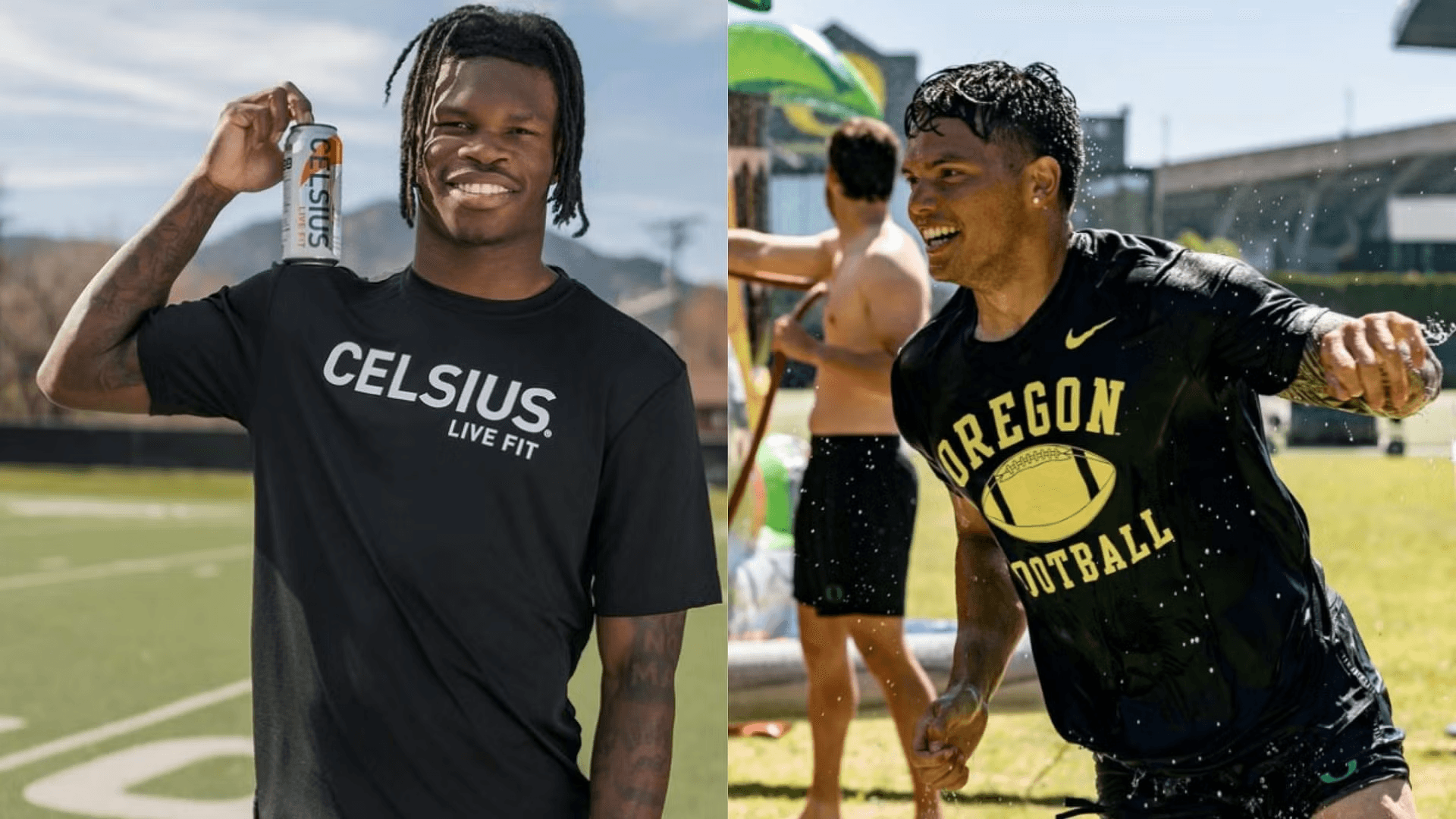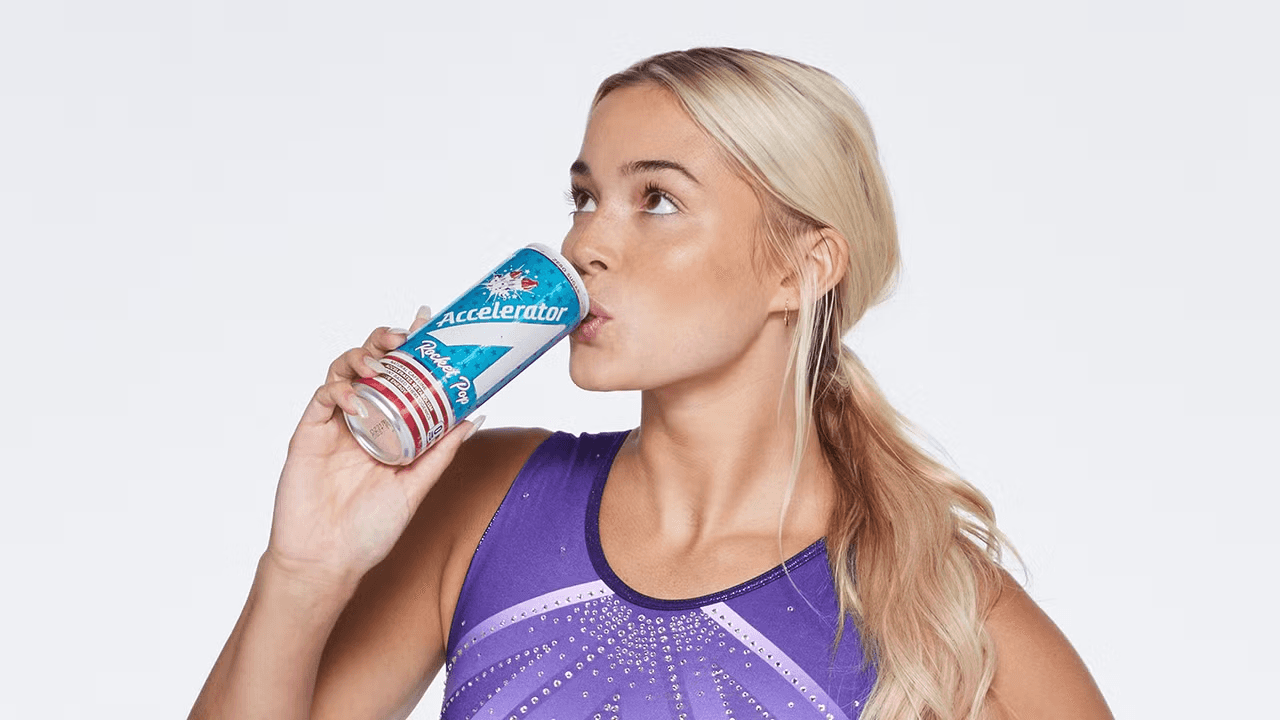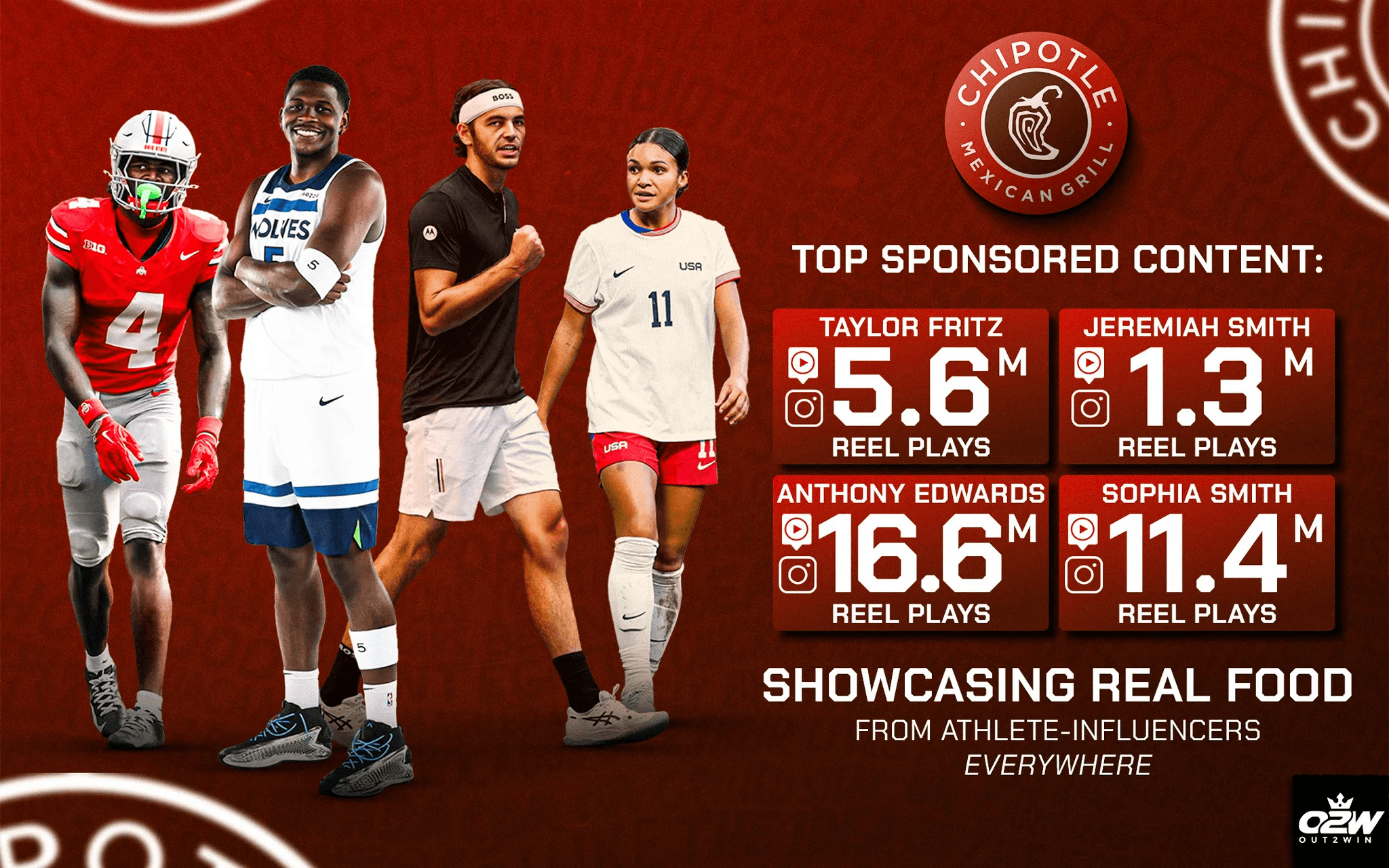Sponsored Content
Mastering College Athlete Partnerships for Energy Drink Brands: Strategies for Authentic Engagement
In the dynamic world of sports marketing, energy drink brands are increasingly turning to college athlete partnerships to boost their visibility and connect with younger audiences. These collaborations, when executed authentically, can create powerful brand ambassadors and drive significant engagement. Let's explore how energy drink companies can master these partnerships through strategic approaches and genuine content creation.

The Power of Star Athlete Brand Ambassadors
Travis Hunter x Celsius and Livvy Dunne x Accelerator: Star Power Across Sports
The partnerships of Travis Hunter with Celsius and Livvy Dunne with Accelerator showcase the immense potential of collaborating with star athletes across different sports:
Massive Young Audience: Both athletes boast significant social media followings, primarily composed of young, aspiring athletes across various sports - a key demographic for energy drink brands.
Performance Integration: By showcasing how these drinks integrate into their rigorous training regimens, Hunter and Dunne provide authentic endorsements that resonate with their peers and fans.
Aspirational Marketing: Young athletes looking to emulate the success of Hunter and Dunne are likely to view these energy drinks as part of the path to athletic excellence.
Key Takeaway: Partnering with star athletes from various sports allows energy drink brands to tap into multiple athletic communities while appealing to a broad base of young, health-conscious consumers.
Innovative Engagement Strategies
Quinn Ewers x C4: Fan Engagement Through Sweepstakes
C4's partnership with quarterback Quinn Ewers showcases an innovative approach to fan interaction:
Sweepstakes offering fans a chance to meet Ewers
Encourages product purchases for entry
Creates direct consumer engagement beyond social media
Key Takeaway: Promotional contests can drive both sales and deeper fan connections.
Micro-Influencer Magic
Caden Davis x G Fuel: Authenticity in Unscripted Content
Caden Davis of Ohio State University’s partnership with G Fuel illustrates the power of micro-influencer authenticity:
Unscripted, genuine content showcasing real product use
Relatable messaging from a non-star player
Demonstrates G Fuel's appeal across various athletic roles
Key Takeaway: Micro-influencers can offer high engagement rates and authentic representation.
Executing Effective Athlete Partnerships: A Strategy Guide for Brands
Identify the Right Athletes
Utilize data analytics platforms to assess an athlete's engagement rates and audience demographics. Look for athletes whose personal brand aligns with your energy drink's values and target market, considering a mix of star power (like Hunter and Dunne) and micro-influencers (like Davis) for a balanced approach.
Craft Authentic Integration Plans
Work closely with athletes to understand their training routines and competition schedules, developing content ideas that naturally incorporate your energy drink into the athlete's daily life. Ensure the partnership feels genuine to the athlete's existing brand and social media presence.
Develop Multi-Faceted Campaigns
Create a mix of content types, including behind-the-scenes footage, workout tips, and game day preparations. Utilize various platforms (Instagram, TikTok, YouTube) to reach different audience segments, planning both long-term brand building content and short-term promotional pushes.
Leverage Seasonal and Event-Based Marketing
Align campaigns with key moments in the athletic calendar, such as season openers and championships. Create special edition products or campaigns tied to significant sporting events, using timely, event-based content to boost relevance and engagement.
Encourage Athlete Input and Creativity
Allow athletes creative freedom in how they present the product and collaborate on content ideas that feel authentic to their personal brand. Be open to athletes' suggestions on how to best reach their specific fan base.
Implement Clear Performance Metrics
Set specific, measurable goals for each partnership, including follower growth, engagement rates, and sales upticks. Use unique promo codes or landing pages for each athlete to track direct impact, regularly reviewing performance data and adjusting strategies as needed.
Foster Long-Term Relationships
View partnerships as long-term investments rather than one-off promotions, developing growth plans that can evolve as the athlete's career progresses. Consider offering equity or revenue-sharing models for top-performing athletes to deepen their commitment to the brand.
Create Community Engagement Opportunities
Organize meet-and-greet events or virtual Q&A sessions with partner athletes, developing challenges or contests that involve both the athlete and their followers. Support causes or initiatives that are important to the athlete and their community to build deeper connections.
Leverage Cross-Promotion Opportunities
Collaborate with the athlete's school or team for wider reach (where permissible) and partner with complementary brands in the sports and fitness space for co-branded campaigns. Utilize the athlete's connections with other influencers or athletes for expanded visibility and reach.
By implementing these strategies, energy drink brands can create more effective, authentic, and mutually beneficial partnerships with college athletes. The key is to view these collaborations not just as endorsement deals, but as integrated marketing partnerships that can grow and evolve over time.
Remember, the most successful athlete partnerships are those that feel genuine, add value to the athlete's brand, and resonate authentically with their audience. By focusing on creating these win-win situations, energy drink brands can leverage the power of college athlete influencers to boost brand awareness, engage with young consumers, and drive long-term brand loyalty.
Sep 15, 2024
Corey Bruno
Here are some related blog posts you might be interested in reading



